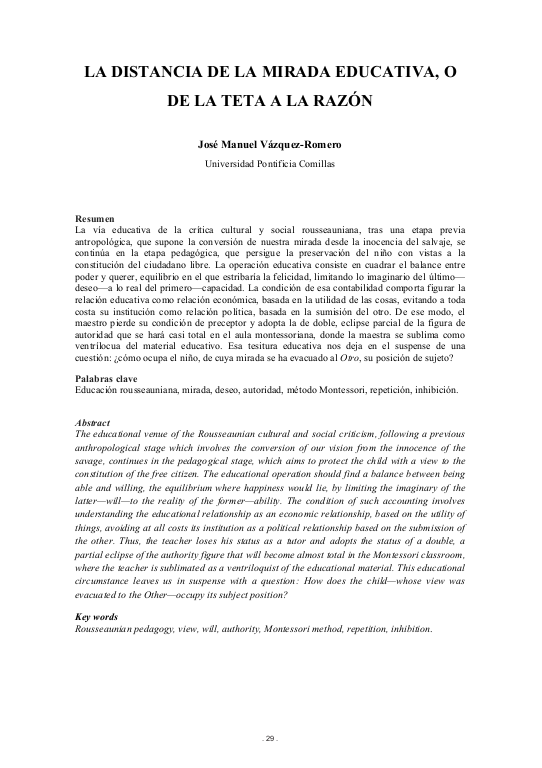La distancia de la mirada educativa, o de la teta a la razón
Main Article Content
Abstract
The educational venue of the Rousseaunian cultural and social criticism, following a previous anthropological stage which involves the conversion of our vision from the innocence of the savage, continues in the pedagogical stage, which aims to protect the child with a view to the constitution of the free citizen. The educational operation should find a balance between being able and willing, the equilibrium where happiness would lie, by limiting the imaginary of the latter—will—to the reality of the former—ability. The condition of such accounting involves understanding the educational relationship as an economic relationship, based on the utility of things, avoiding at all costs its institution as a political relationship based on the submission of the other. Thus, the teacher loses his status as a tutor and adopts the status of a double, a partial eclipse of the authority figure that will become almost total in the Montessori classroom, where the teacher is sublimated as a ventriloquist of the educational material. This educational circumstance leaves us in suspense with a question: How does the child—whose view was evacuated to the Other—occupy its subject position?

